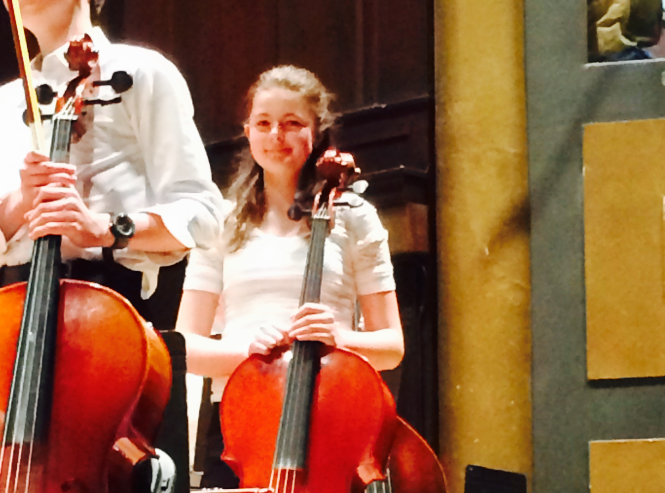A classical music fan even as a child, I went to my first symphony at 11 years old. Just before the conductor began his elusive dance, he cued a single, collective breath—an upbeat, as I would later learn. That instance was electric, the orchestra and audience anticipation alike generating a tangible energy felt through the hall. Suddenly, music coloured the air, players moving in tandem. I listened, enraptured. And after the thrill of the performance, epic as a raging storm and tranquil as a dew-covered petal—another silent beat, and then thunderous applause. I fell in love.
I started learning to play the cello in seventh grade in my middle school’s strings program. Encouraged by my teachers, I applied and was admitted to a specialized arts high school. I was not an accomplished player; rather, through instruction and hard work, I cultivated my skills alongside my peers. In many ways, music shaped my identity: I fostered friendships with stand partners, built my self-confidence, and found my community. With each mid-performance smile shared with friends across the stage, I was tapped into the orchestral magic that had first resonated with me years earlier.
Halfway through high school, however, I realized that I could not be a professional musician. I enjoyed the creative and community elements, but the constant rehearsals, lessons, and practice sessions were tedious. Though manageable, if I planned to audition for music programs, my playing calibre and practice intensity would need to increase significantly. Looking forward, I could see that such rigorous obligation would taint my passion if I were to bind myself to my cello as a livelihood, and a mixture of self-doubt in my abilities and fear of commitment rendered that avenue unattainable.
In deciding to let go of professional expectations, I was free to do what I wanted. Despite my senior year being chock-full of music-related responsibilities, the pressure to perform well came from a need to do my best for my teachers, peers, and my own standards, without future stress looming over me. This meant I could dedicate more time to academics and chamber groups that I could play in for fun. It also gave me time to prepare for my very first Royal Conservatory exam, a metric by which many Canadian music students gauge their skill level. Completing it would be both concrete proof and a fitting capstone of my progress. After scheduling the date in June, the summer months became a flurry of frantic practicing, and, just days before moving to Montreal, I completed the grade-eight exam, ending my cello career.
Well, not quite: I still played at home, for my family and myself. I did feel a significant loss, though, even knowing that I couldn’t bring my instrument with me to university. Besides missing the camaraderie of rehearsals and the excitement of concerts, I also lost my callouses, which I had built up over six years—a physical reminder that this new identity I would forge myself would not revolve around music.
I know this all sounds dramatic. I’m incredibly privileged to have had these opportunities, and I’ll always be grateful. Regardless, leaving something you love, even intentionally, will always be bittersweet.
Although we’re told to “follow our dreams,” sometimes it’s best to separate a personal interest from a career—adhering to impossibly high standards should not impede your ability to enjoy your craft. In choosing to not pursue music professionally, I redefined my creative passion to one influenced by internal motivations rather than external pressures. It is a conscious decision not to monetize your every interest; it will still always be worth it to find fulfillment in the arts, no matter your age, skill level, or commitment. Be the architect of your own joy, and support artists who share theirs with the world. Professional musicians continue to inspire me: Every time I watch a live performance, experiencing an orchestra weave pure magic from a seat instead of the stage, I fall in love all over again.










Exquisitely written. I was there with your every word. You may be cultivating another special gift in your writing. It had its own cadence and melody. I hope you write more.
Thank you so, so much Susan!! It truly means so much to me to hear. Sending love!!